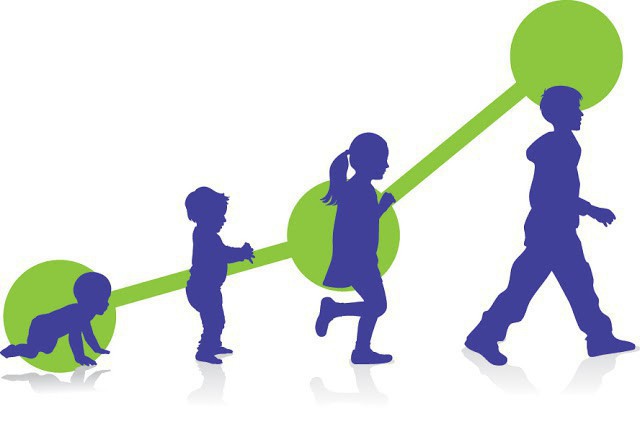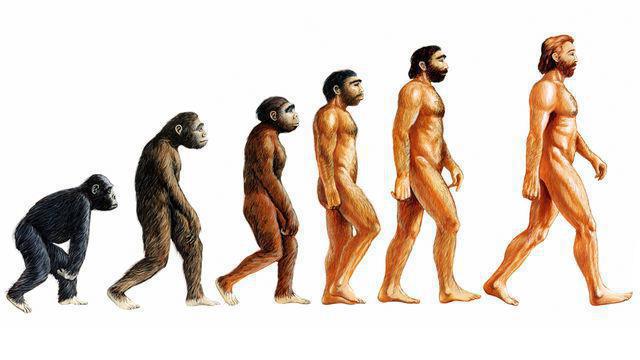When it comes to history, you can hear a phrase like “events presented in chronological order”. What is a chronology? And by what principle is it necessary to list the dates so that they correspond to this term?
If you want to understand what an incomprehensible word is, read the article. And you will not only learn its interpretation, but also learn to arrange any dates or events in chronological order. Even those that happened directly in your life.
How to open the veil of secrecy of the word "chronology"
Imagine for a moment that every word in Russian or any other language is a living organism ...
And after all, such an assumption is not so far from reality. Because each word has its own history of origin, as well as the date of birth. Some words, as well as famous people, for example, scientists or actors, are famous, they often arise in speech, and therefore a huge number of people know their meaning. Words, like people, can die over time, becoming archaisms - obsolete terms that are no longer used in conversation or writing.
That is why, in order to understand a word, it is necessary to get to know it better. To do this, reading its definition is not enough; you should also find out its etymology, spelling, scope or area of use, the presence of synonyms and antonyms, as well as other important information.
That is why a detailed analysis will help to understand what a chronological order is.

We analyze the word in detail
A chronology is a list or sequence of any events (more often historical) as they occur from a certain period of time, as well as a science that studies these events. The word has Greek roots and was formed from "chronos" - time and "logo" - teaching.
When pronounced, it is heard (as a hranalogy) with emphasis on the third syllable - chronology. But the following will be the correct spelling: chronology. Due to the fact that, as we mentioned earlier, the word came from "chronos", which is written through the letter "o" in both syllables.
It is not difficult to find synonyms for it. After all, they can be borrowed directly from his interpretation:
- sequence;
- succession;
- turn;
- scroll;
- time calculation;
- order.
There are no direct antonyms, but the words “randomness”, “disorder”, “inconsistency” can be considered indirect.

What is a chronological order?
Knowing what secret lies behind the word “chronology”, one can easily guess what the phrase “chronological order” is.
In fact, this expression should be understood as nothing more than a sequential list of events based on the dates of their origin. It begins with the very first, which was still in antiquity, and ends with modernity.
Thus, if the teacher gives the task to arrange, in chronological order, the key stages of the emergence and development of the Russian Federation, you should simply describe how the life of the country went from birth to the present.
Why do I need to establish a chronology of events
So we found out what this complex concept is. However, it remains a mystery why to build a chronological order of certain events. At school, such tasks are performed in order to obtain a positive mark. And why do adult scientists who even come up with a whole science for such an incomprehensible lesson do this?
Perhaps chronology brings some benefit to society? Let's try to find out what the chronological order is from the point of view of science and its importance for the modern world.

There is a thoughtful statement: "A man without a past, like a tree without roots." That is, a person who does not know the history of his own life or his family, city, country, planet, is simply nothing. In addition, as you know, people should learn from mistakes. But how to do it if they don’t know anything about past events. It turns out that such creatures are doomed to step on the same rake again and again?
For a full study of history, an analysis of past events and their consequences is necessary. And it can be done only if a clear order of all stages of history is known. It is precisely this goal that science chronology serves, which studies and presents a series of dates and events in the correct sequence.
Research concept in the scientific and educational fields
Surely any person who understands what the chronological order is, the following question arises: "Where can this phrase be used?"
The answer is pretty simple. Indeed, despite the fact that the concept sounds rather obscure, the task that it implies is still familiar to students. For example, from history lessons. When it is required to arrange the rulers in chronological order or indicate the dates of the great battles, compose a family tree, etc.
In addition, the phrase studied in the article can also be heard in literature lessons. When considering the life of a writer or poet, the history of his work. Or in biology classes - in the study of human evolution.
Timeline of everyday life
The studied concept can be found not only in the scientific or educational field, but also in everyday life. For example, many girls and girls keep diaries in which they write down all interesting, important, sad or funny events that have occurred on the current day. The purpose of such innermost books is the expression of thoughts, analysis of actions, etc. However, they also contain on their pages the history of the lives of these girls in chronological order.
Also on blue screens are not uncommon programs (they usually go on the air at the end of the year), showing us new music or films that we met in the past year. They are presented in chronological order.
In addition, for the convenience of searching, for example, a favorite movie or series on the Internet, many sites offer their visitors a chronological order of films. In it, the pictures follow each other as they go out. And it makes the search very easy.
Thus, the concept investigated in the article is of great importance for the development and functioning of society. As well, science is a chronology.